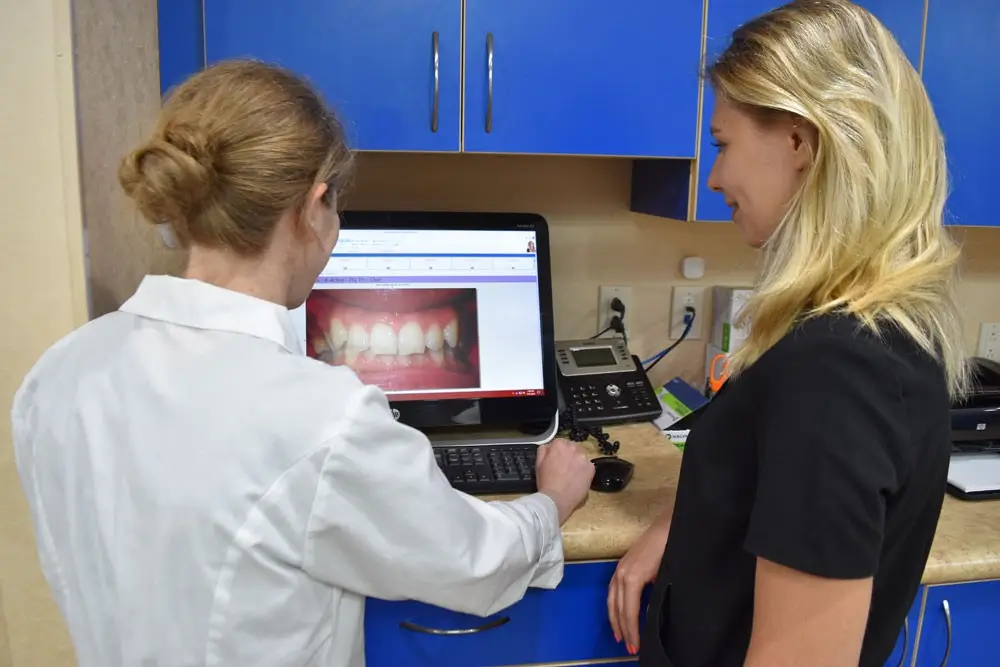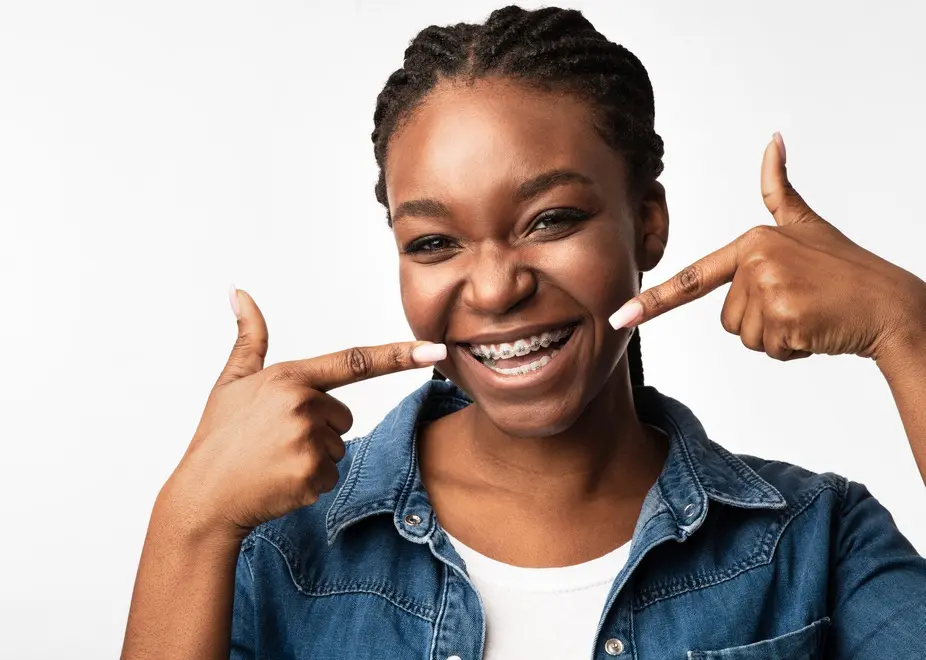3. Refrain from activities that could damage your braces, and wear protective gear.
One of the most common orthodontic emergencies is broken braces from playing sports. If you play a
contact-heavy sport like basketball or wrestling, be sure to always wear a mouthguard to protect your teeth
and your braces appliance.
4. Brush and floss every day.
Keeping your teeth, mouth, and braces appliance clean and fresh is absolutely critical for effective,
efficient braces treatment. Be sure to brush thoroughly twice a day and after meals, for 2 minutes each time.
Floss between all of your teeth, using a floss threader to easily get under the archwire of your braces. You
can also use a waterjet and mouthwash for an extra effective oral healthcare routine.
5. Deal promptly with any braces emergencies.
A broken wire or bracket is not effective in moving your teeth and will slow down your treatment. While many
orthodontic emergencies can be handled at home, some will require an office visit. Read the below guide to
learn what to do in an orthodontic emergency, and contact your orthodontist if any issues arise.
6. Attend all your orthodontic appointments.
Braces wearers will need to visit their orthodontist regularly for check-ups, adjustments, and replacement of
certain parts of the appliance. How frequently you ??ll visit the doctor depends on the type of orthodontic
treatment, but braces patients usually come to the office every 8-10 weeks.
If you can ??t make an appointment, let your doctor know and reschedule as soon as possible. The adjustments
are a necessary part of treatment, and if you go too long without a visit, your treatment will be slowed down
as a result.
7. Select an experienced orthodontic professional.
The most experienced doctors know how to create lasting, reliable results in the shortest amount of time.
Years of experience allow an orthodontist to select the most conservative, effective treatment plan, utilize
the appliance most efficiently, and maximize the effectiveness of each step of treatment.
When seeking an orthodontist, ask about their experience ?? where did they train, how many years have they
been in practice, and how many patients have they treated with your specific treatment method. In addition, a
specialist orthodontist will likely have more experience and skill than a general dentist.


